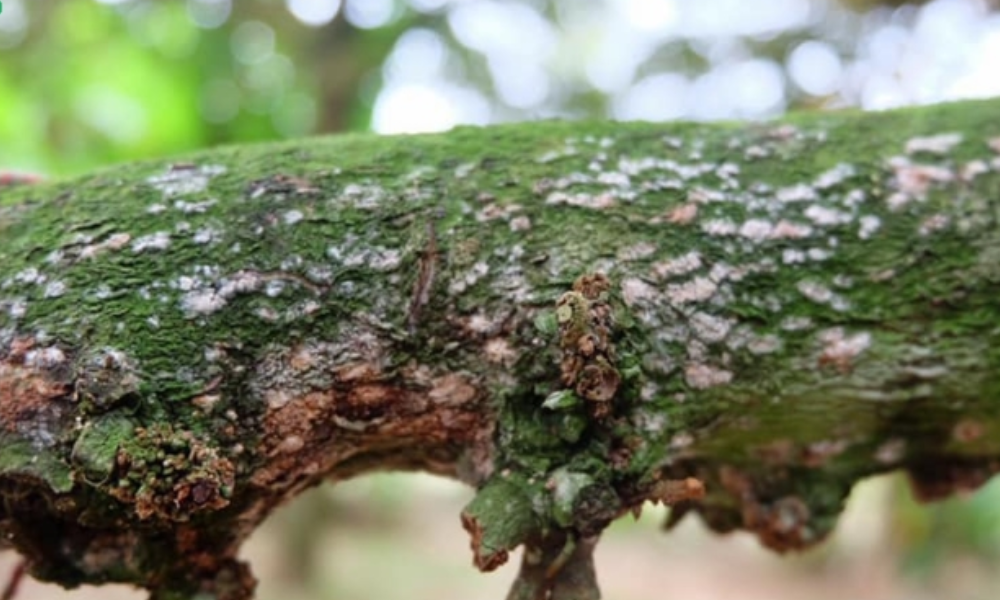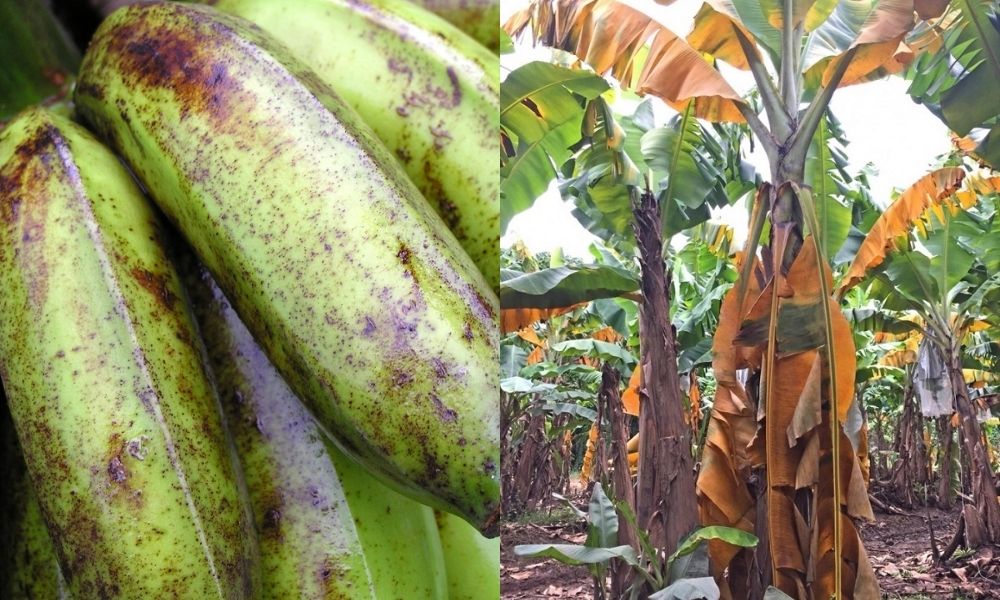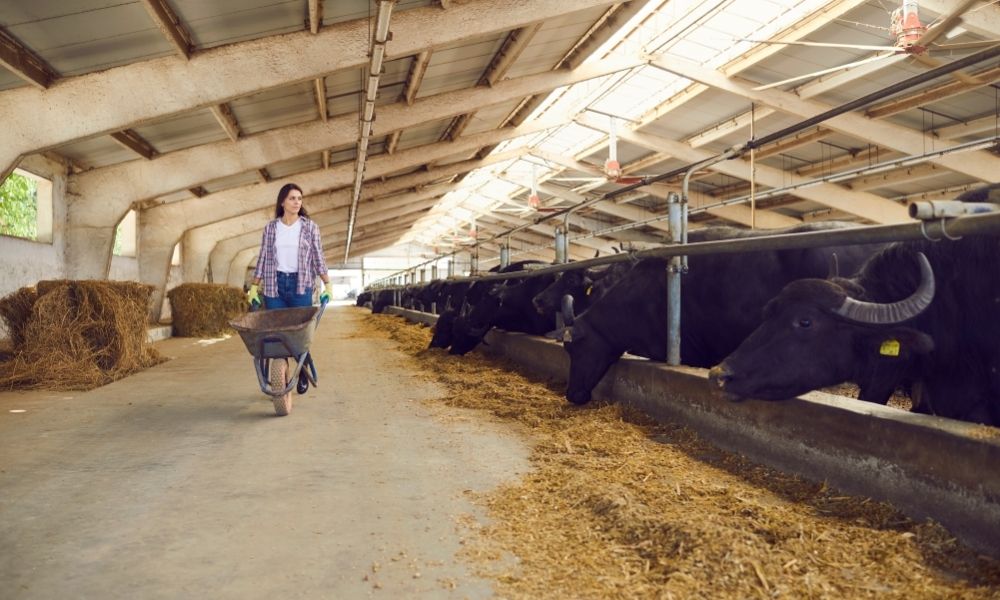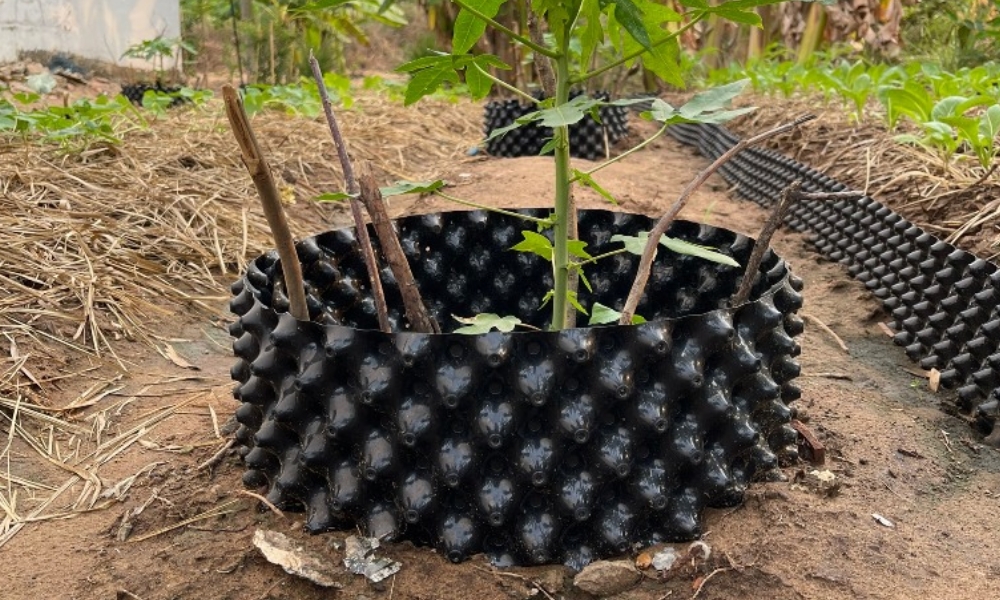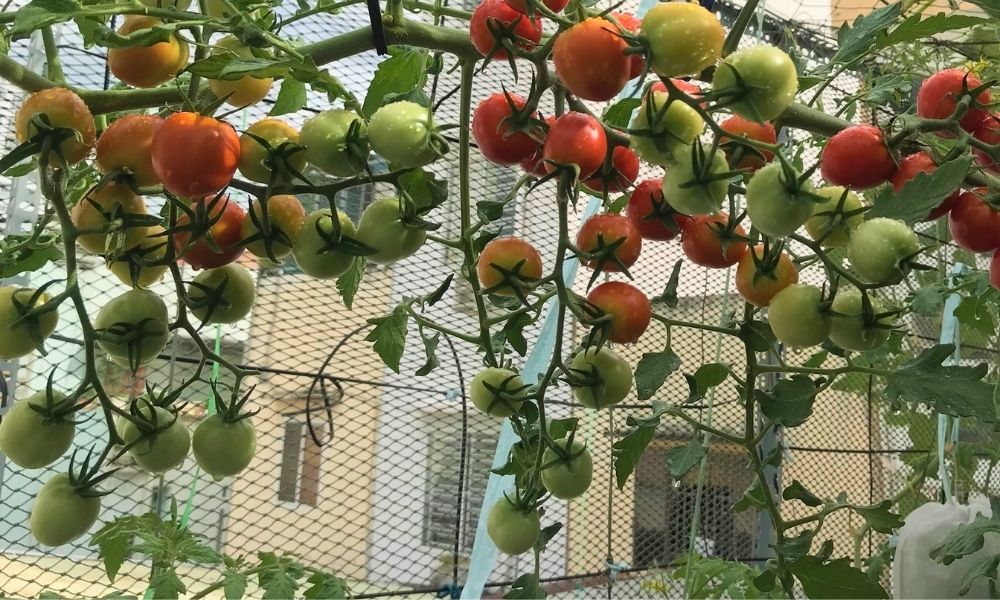Phân bón hữu cơ vi sinh là gì? Công dụng và cách dùng hiệu quả
Microbiological organic fertilizer is favored by safety, sustainability and supporting plants to develop well. However, using it effectively, not everyone applies correctly. Please find out details with Blog Kiến Thức Tổng Hợp Nông Nghệp!
What is microbiological organic fertilizer?
Microbiological fertilizer is a type of fertilizer produced by processing and fermenting organic materials. Composition of Microbiological organic fertilizer Contains a minimum of 15% of organic matter and there are many types of living microorganisms. When applying to the soil, these microorganisms work with an average density of over 1 × 10⁶ CFU/mg each, helping to improve soil and support planted crops.
Use Microbiological organic fertilizer is a safe, environmentally friendly solution, does not contain toxic chemicals and brings sustainable effects to plants.
 Microbiological organic fertilizer provides plants.
Microbiological organic fertilizer provides plants.
Types of microbiological organic fertilizers
Based on the ingredients and content of nutrients, microbiological organic fertilizer is divided into 7 main types, each brings specific use for plants:
Organic fertilizer Fixed nitrogen:
Contains bacteria and microorganisms that are able to fix nitrogen from the air, transformed into an easy -to -absorb crop, which helps to replenish natural protein for the soil.
Microbiological organic fertilizer:
Providing microorganisms that help dissolve phosphorus difficult to dissolve in the soil, support trees to absorb phosphorus effectively, promote root growth and increase the likelihood of fruiting.
Microbiological organic fertilizer/silicon:
Contains microorganisms capable of resolving minerals containing silicate, releasing potassium and silicon ions. This helps plants absorb nutrients better, enhance resistance and harden plants.
Microbiological organic fertilizer resolves organic matter/cellulose:
Including microorganisms decomposing organic matter, vegetable residue, fresh manure such as cellulose, kitin, … help improve the soil structure and provide long -term nutrition for the tree.
Microbiological organic fertilizer inhibits pathogenic microorganisms:
Contains microorganisms that are resistant to antagonists, parasites, or diseases inhibitors, helping to protect plants from harmful agents from the soil.
Microbiological organic fertilizer provides minerals and micronutrients:
Rich in microorganisms capable of dissolving minerals such as Si, Zn, … Supporting the necessary micronutrients, helping plants grow evenly and healthy.
Microbiological organic fertilizer produces growth stimulants:
Including microorganisms that produce plant hormones such as IAA, Auxin, Gibberellin, … help plants grow fast, increase flowering, fruit and improve productivity.
The selection of microbiological organic fertilizers suitable for each type of tree and soil conditions will help optimize farming efficiency, improve the quality of agricultural products sustainably.
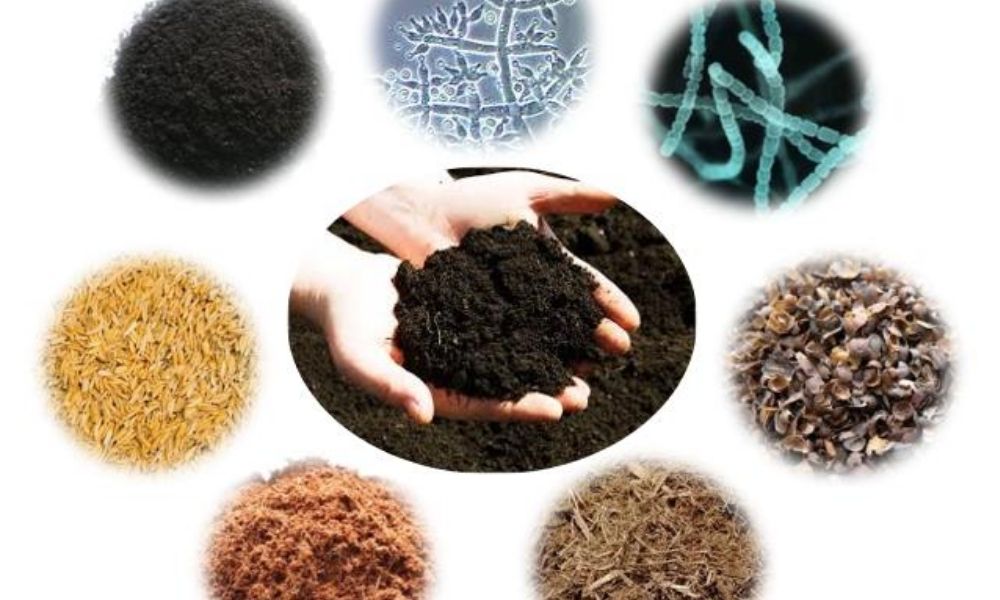 Ingredients contain microorganisms each type of organic fertilizer.
Ingredients contain microorganisms each type of organic fertilizer.
Advantages and disadvantages of microbiological fertilizer
When choosing Microbiological organic fertilizerpeople need to consider the benefits and limitations that the product brings. To better understand, let’s explore advantage and disadvantages of the fertilizer below.
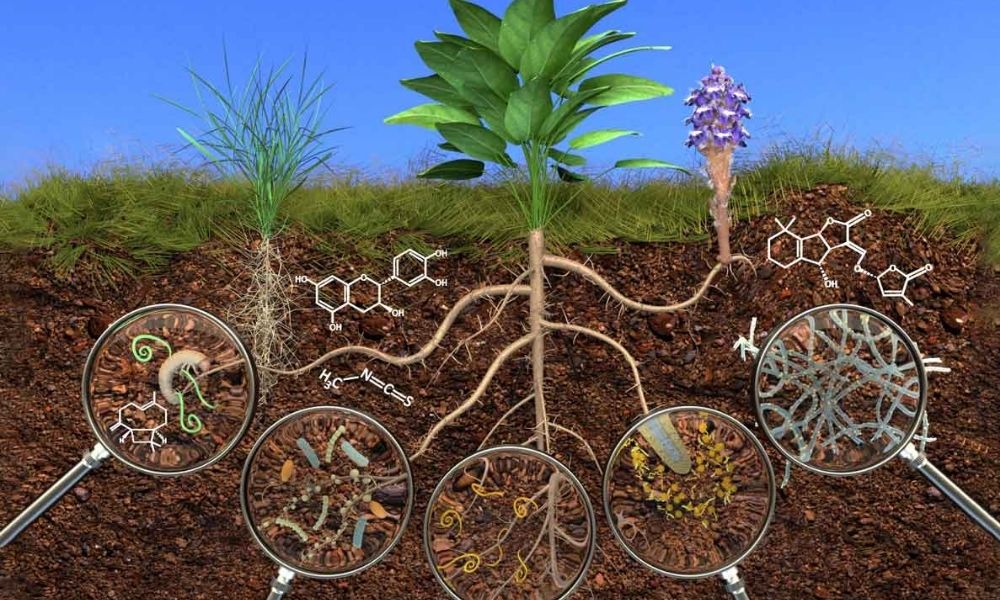 Advantages and disadvantages of microbiological fertilizer that people need to know.
Advantages and disadvantages of microbiological fertilizer that people need to know.
Advantages of microbiological organic fertilizers
Microbiological organic fertilizer has many outstanding benefits to crops and arable soil. First of all, this fertilizer helps improve soil, maintain fertility and increase fertility sustainably. The use is also very simple, just fertilizing directly without worrying about harmful to plants or soil degeneration, acidity or alum.
In addition, microbiological fertilizer can replace chemical fertilizers, provide essential nutrients that chemical fertilizer does not meet. The microorganisms that break down in the feces make it easy to absorb the soil -soluble nutrients. In particular, this product is friendly to the ecosystem, safety for people and animals.
Disadvantages of microbiological fertilizers
Besides the benefits, Microbiological organic fertilizer There are also some limitations. Quality and content of components in incubation are not always uneven. The compost requires a large area and effort, especially when there is a shortage of manpower. In addition, the incubation process can cause an unpleasant odor, affecting the surrounding environment and causing inconvenience for unknown people.
Although there are some limitations, it cannot be denied the outstanding benefits Microbiological organic fertilizer Bring. Therefore, this product is increasingly encouraged to use commonly in sustainable farming.
Distinguish microorganisms and organic fertilizers
| Criterion | Microbiological fertilizer | Microbiological organic fertilizer |
| Essentially | A preparation containing beneficial microorganisms. | Is organic fertilizer that is treated, fermented with useful microorganisms. |
| About the carrier | Often use humus as fillers, microorganisms. | Manure, peat, coffee shells, sugarcane mud, etc. |
| About microorganisms | From 1.5 × 10⁸ CFU/mg | From 1 × 10⁶ CFU/mg |
| About microorganisms | Microorganisms fixed nitrogen, phosphorus resolution, cellulose resolution. | Microorganisms fixed nitrogen, phosphorus resolving, stimulating growth, bacterial antagonism, fungi, … |
| Usage method | Mix with seeds, roots or apply directly to the soil. | Apply directly to the soil. |
The above table helps people clearly distinguish between Microbiological fertilizer and Microbiological organic fertilizersupporting people to choose the type of fertilizer that suits their farming needs.
Uses of microbiological organic fertilizers
Microbiological organic fertilizer Not only provides essential nutrients for plants but also brings many outstanding benefits to the soil and the environment. Here are the outstanding uses that this fertilizer brings.
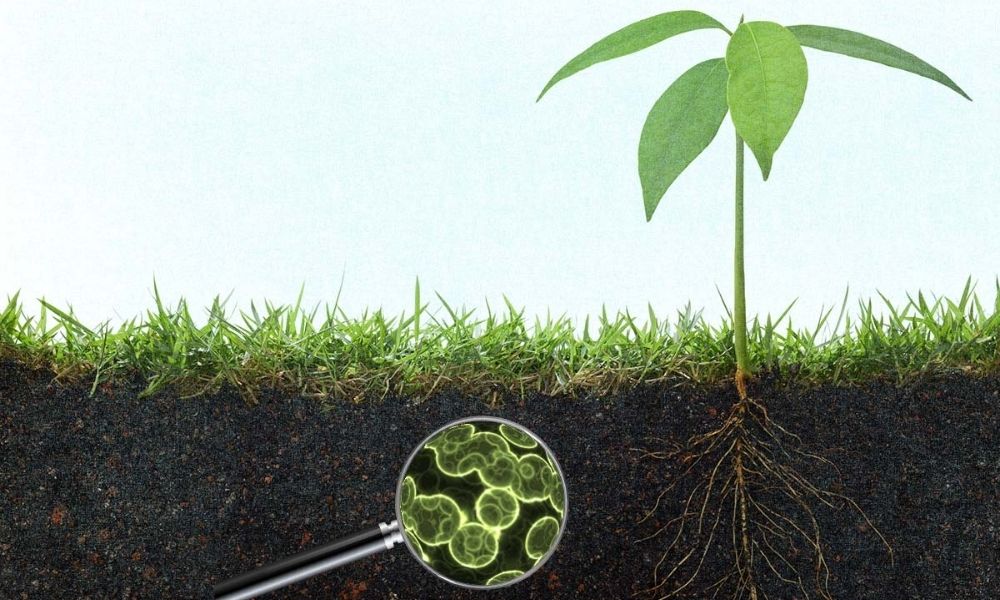 The use of microbiological organic fertilizer brings to plants.
The use of microbiological organic fertilizer brings to plants.
Improve production and quality of agricultural products
Nutrients, minerals and micronutrients (n, p, k, …) in Microbiological organic fertilizer Help plants develop comprehensively, maximize production. This is the most noticeable advantage when using microbiological fertilizer. In addition, beneficial microorganisms help plants grow stable, naturally agreed, thereby improving the quality of agricultural products, leaving no toxic chemical remnants such as using inorganic chemical fertilizers.
Strengthen resistance, fight pests
Microbiological organic fertilizer Helping plants against pests and diseases through two main mechanisms:
- Improve natural resistance of the tree, helping the tree to be healthy from the inside.
- Preventing insects and insects Thanks to the natural essential oil mixture in feces.
As a result, plants are less affected by specific pests and diseases, minimizing the demand for plant protection drugs.
Conservation and renovation of the soil environment
Organic substances in Microbiological organic fertilizer Combined with the available organic matter in the soil, creating a sustainable microbiological structure, helping the soil to prevent erosion effectively. This is an advantage that chemical fertilizer cannot bring. At the same time, this type of fertilizer also helps to eliminate alum, acidity and detoxify soil (both organic and inorganic), contributing to improving the quality of long -term cultivated soil.
Safe, flexible in use, technology application
Use Microbiological organic fertilizer Ensuring safety for users and environmentally friendly due to the absence of toxic chemicals. Moreover, the product can be applied with modern technology such as unmanned agricultural aircraft, helping to reduce labor effort and improve efficiency in spraying, spreading feces or sowing.
Thanks to the diverse and practical uses, Microbiological organic fertilizer More and more a priority option for sustainable agricultural farming.
Application of microbiological organic fertilizer
For the environment: Microbiological organic fertilizer is an environmentally friendly choice, does not pollute soil, water or air. The use of this fertilizer helps maintain a balanced ecosystem, protects human and animal health, and does not negatively impact on plants.
For crops: Microbiological organic fertilizer provides all necessary nutrients, helping plants grow stable and sustainable. Although the nutritional content is not as high as chemical fertilizer, plants can absorb completely for a long time without causing toxic residues. This helps minimize soil exhaustion, contributing to improving productivity and quality of agricultural products.
For land: One of the outstanding advantages of microbiological organic fertilizer is the ability to improve soil. The organic ingredients in the feces help the soil loosen, increase fertility and maintain the necessary moisture. In addition, the feces also improve the microbiological system in the soil, creating favorable conditions for plants to grow healthy.
Thanks to these positive effects, Microbiological organic fertilizer Not only helps improve farming efficiency but also contributes to environmental protection, maintaining sustainable development in agriculture.
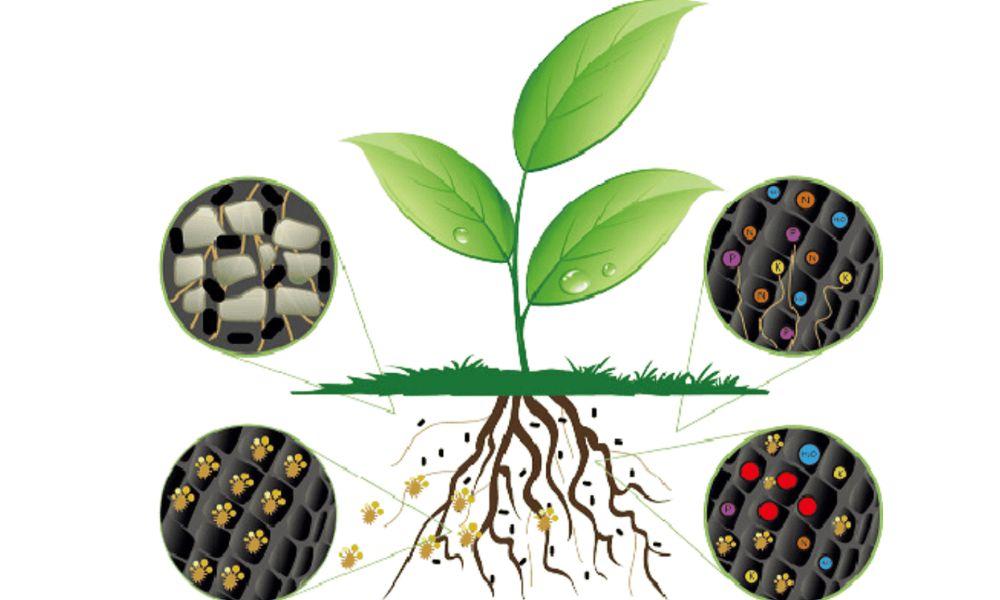 Application of microbiological organic fertilizer to the environment, crops and soil.
Application of microbiological organic fertilizer to the environment, crops and soil.
Suitable crops using microbiological organic fertilizers
Microbiological fertilizer is a versatile nutritional solution, suitable for many crops and crops. The use of the right fertilizer for each tree helps increase farming efficiency and achieve high productivity.
- Fruit tree: Applicable to longan, grapefruit, jackfruit, rambutan, tangerine, lemon, strawberry, guava … to help the tree stay healthy, give sweet fruits, stable yield.
- Flowers: Suitable for both pots and potted flowers, support beautiful flowers, durable.
- Ornamental tree: Suitable for ornamental plants or planting outside the ground like apricot, bonsai …, helping green leaves, beautiful shape.
- Vegetable: Used for leafy vegetables, vines and tubers such as tomatoes, cucumbers, potatoes, broccoli … to help vegetables grow naturally and safely for health.
- Industrial tree: Applicable for sugarcane, jaggery and other raw materials, support stable growth, improve the quality of finished products.
- Food crop: Suitable for rice, peanuts, corn, potatoes …, helping to increase productivity and harvest quality.
Use Microbiological organic fertilizer Proper ways for each type of tree not only helps the tree grow healthy but also ensures the bumper crop for farmers.
Note when using microbiological organic fertilizers
Microbiological organic fertilizer plays an important role in the formation and development of plants. However, in order to maximize the effectiveness, people need to note some of the following points:
Determine the appropriate time of fertilization:
- Early fertilizing: Because microbiological organic fertilizer helps the roots thrive and renovate the soil, it is necessary to apply early on the soil, especially in the stage of preparation.
- For fruit trees: After cutting branches, creating canopy, should be applied to the tree to recover quickly, nourish new shoots.
- For dragon fruit trees: Before burning the light to the new batch, always need to apply microbiological organic fertilizer so that the tree can absorb nutrients in time.
Methods used by each tree
- Vegetables, crops: Must be composted before applying to limit organic poisoning and help plants easily absorb nutrients.
- Perennial: Can be used Microbiological fertilizer Selling or completely incubating. Do not apply directly when the stool has not been carefully incubated because it is easy to harm the roots.
Adjust the dose when combined with chemical fertilizer: When using microbiological organic fertilizer with high protein content, it is necessary to reduce the amount of chemical fertilizer to avoid excess protein. Excessive fertilizing will cause young shoots to overdue in the summer, autumn, causing the tree to produce a little fruit and slow down the process of coloring of the fruit.
Choose the appropriate way to apply: If the fertilizer is incubated, can be used for fertilize (soil improvement) or fertilizer (nutrition supply) depending on farming needs. The choice of type Microbiological fertilizer Suitable will help the tree grow healthy, high productivity and superior agricultural quality.
Following the above notes not only helps optimize the efficiency Microbiological organic fertilizer but also ensures that the crops develop sustainably, safe for the environment and human health.
Microbiological fertilizer not only helps to improve the soil but also improves crop productivity sustainably and safely. Choosing and using properly will help people achieve productivity in their crops. Do not forget to follow Sfarm Blog to update more useful information!
See also:
Blog Kiến Thức Tổng Hợp Nông Nghệp – Dang Gia Trang Happiness is Reliable supplier of agricultural materials in the direction of organic and biological of 1500 agents and stores nationwide. Please contact the following information so that the Blog Kiến Thức Tổng Hợp Nông Nghệp team can quickly support:
– Website: https://sfarm.vn
– Hotline: 0934 19 xxxx
– Zalo: CSKH Blog Kiến Thức Tổng Hợp Nông Nghệp – 0934 19 xxxx
Chuyên mục: Kiến thức làm vườn
Nguồn: lol.edu.vn

 0934.19.6789
0934.19.6789
